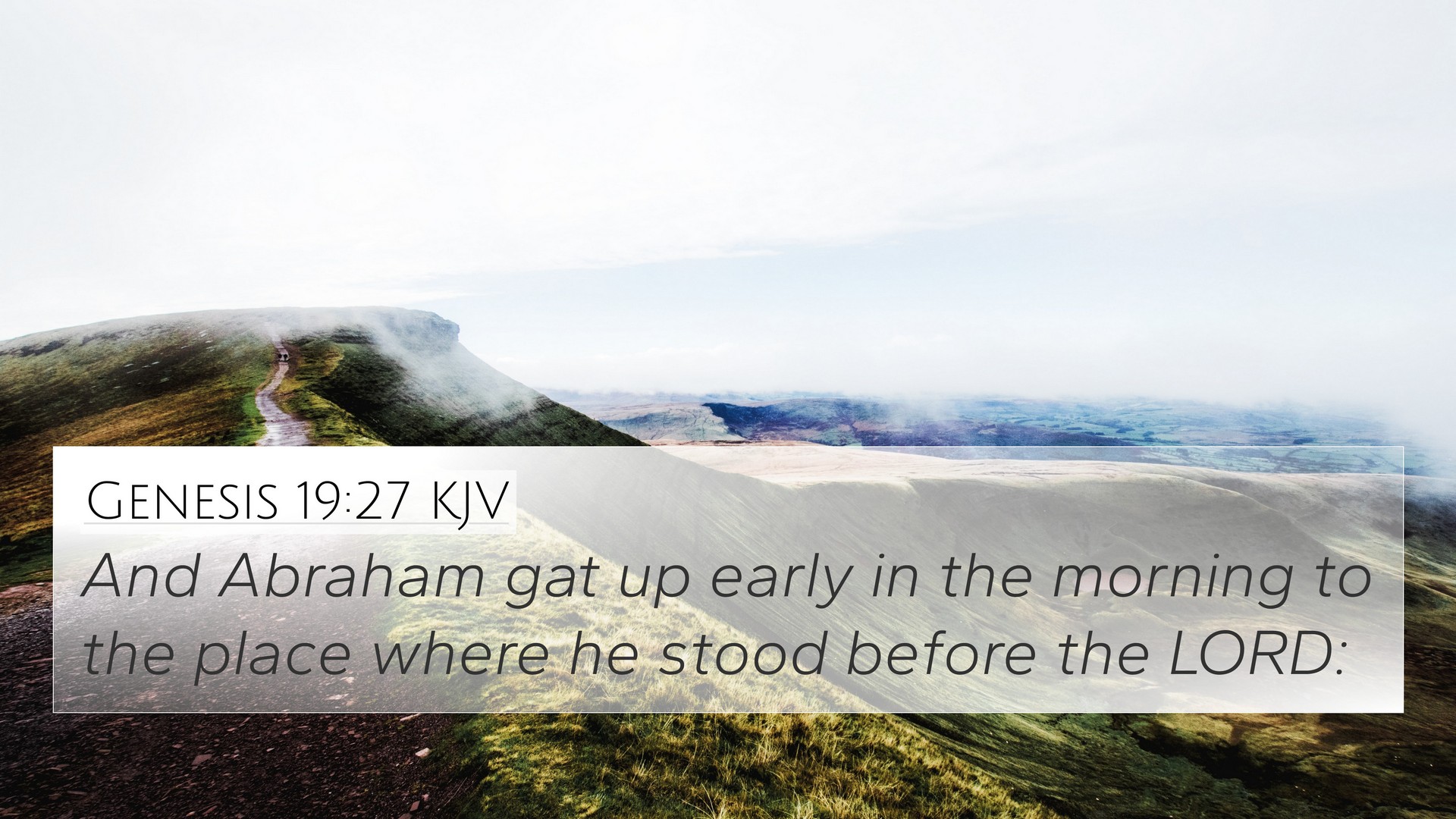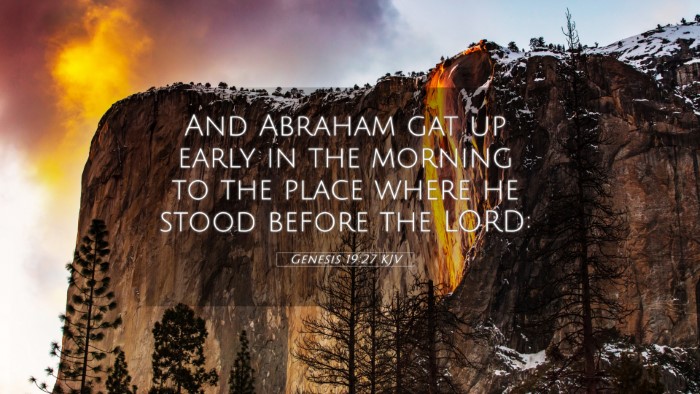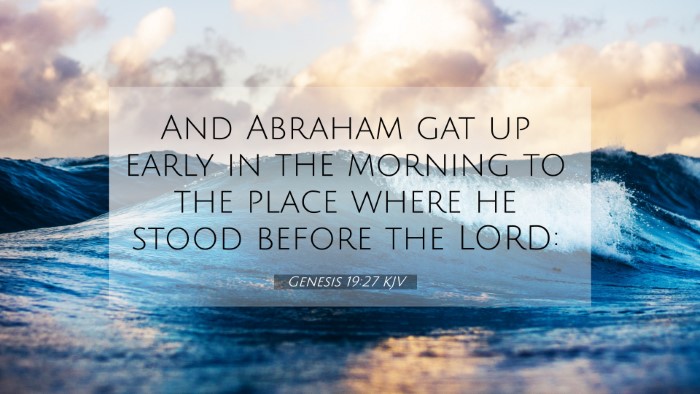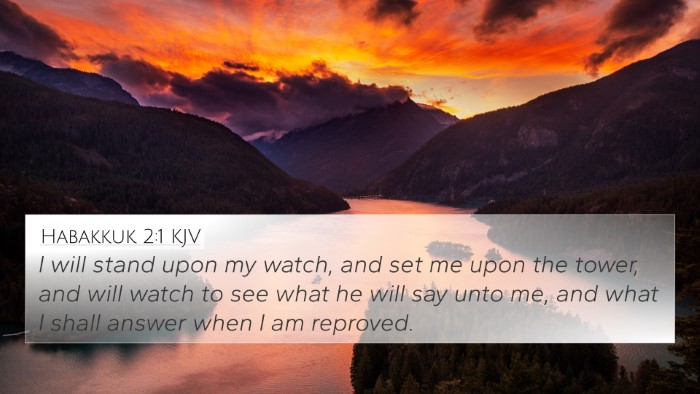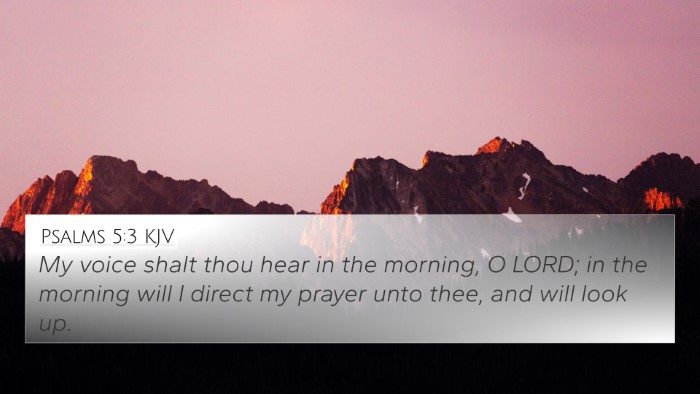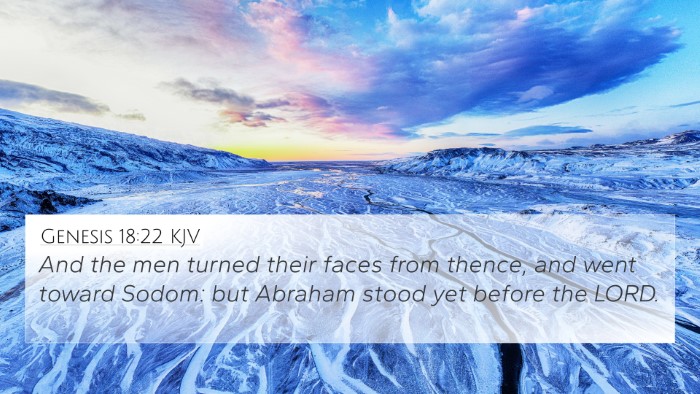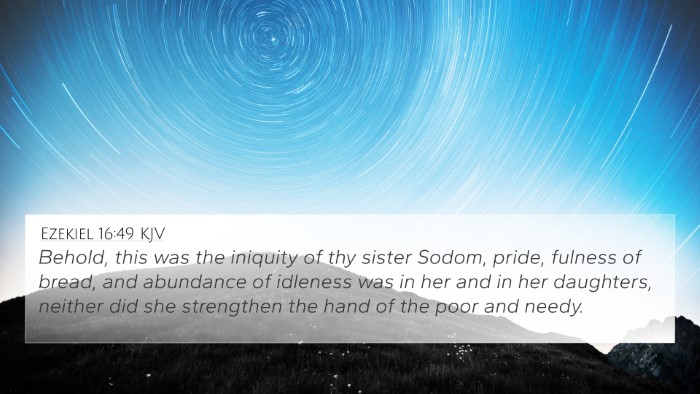Understanding Genesis 19:27
Verse: Genesis 19:27 states, "And Abraham got up early in the morning to the place where he stood before the Lord." This verse serves as a poignant moment of intercession and reflection in Abraham's journey, encapsulating deep themes of faith, prayer, and divine communication.
Meaning and Interpretation
The verse is notable for its emphasis on Abraham’s actions following the destruction of Sodom and Gomorrah. Abraham’s early rising signifies his earnestness in seeking the Lord and understanding His ways. The location where Abraham stood reflects his commitment to prayer and intercession.
Commentary Insights
-
Matthew Henry: In his commentary, Henry highlights that Abraham’s return to the place where he prayed illustrates the importance of maintaining a consistent relationship with God. The act of rising early further emphasizes a dedication to seeking God’s will and an earnest hope for the righteous who lived in those cities.
-
Albert Barnes: Barnes expands by noting that Abraham's act was not just a ritual, but a demonstration of his heart's desire for the deliverance of Lot and the righteous. The timing of his rising reflects a sense of urgency and determination to seek divine mercy.
-
Adam Clarke: Clarke elaborates that the location signifies a place of previous encounters with God—the altar where Abraham had built. It indicates a place where one can reflect and petition God’s purpose, as he did often throughout his life.
Key Themes
- Intercession: The act of advocating for others before God is central to this verse, portraying Abraham’s role as a mediator.
- Faithfulness: Abraham’s dedication signifies his unwavering faith and reliance on God, serving as a model for earnest prayer.
- Divine Communication: The importance of conversing with God and understanding His plans is evident in Abraham’s actions.
- Location of Prayer: The significance of returning to a sacred space denotes the importance of place in spiritual practices.
Bible Cross-References
Genesis 19:27 is connected to several other scriptures that deepen its context and meaning:
- Genesis 18:22-33: Abraham's intercession for Sodom and the discussion of finding righteous people in the city.
- James 5:16: The power of the righteous person's prayer, analogous to Abraham’s faithfulness in prayer.
- Luke 18:1-8: The parable of the persistent widow, which shows the necessity and persistence in prayer.
- 1 Timothy 2:1: The call to pray for others, aligning with Abraham’s actions.
- Romans 8:26-27: The Spirit helps us in our weakness, paralleling Abraham's reliance on God in prayer.
- Hebrews 11:6: The importance of faith, reflecting Abraham's belief in God’s promises.
- Jeremiah 29:12-13: God’s assurance that He hears our prayers when we seek Him with our hearts.
Comparative Bible Verse Analysis
This verse opens a dialogue between the themes of righteousness and judgment found throughout Scripture. It can be linked thematically with New Testament teachings that emphasize prayer, faith, and God's mercy. For those studying these connections, utilizing tools such as a bible concordance or bible reference resources can enhance understanding and study.
Conclusion
In conclusion, Genesis 19:27 encapsulates significant themes relevant to the believer’s life, particularly regarding prayer, faith, and the importance of advocating for others. Engaging with these themes through comparative studies and cross-referencing related scriptures can enrich one's understanding of God’s character and His dealings with humanity. This verse serves as a rich foundation for deeper theological reflection and practical application in the life of a believer.
